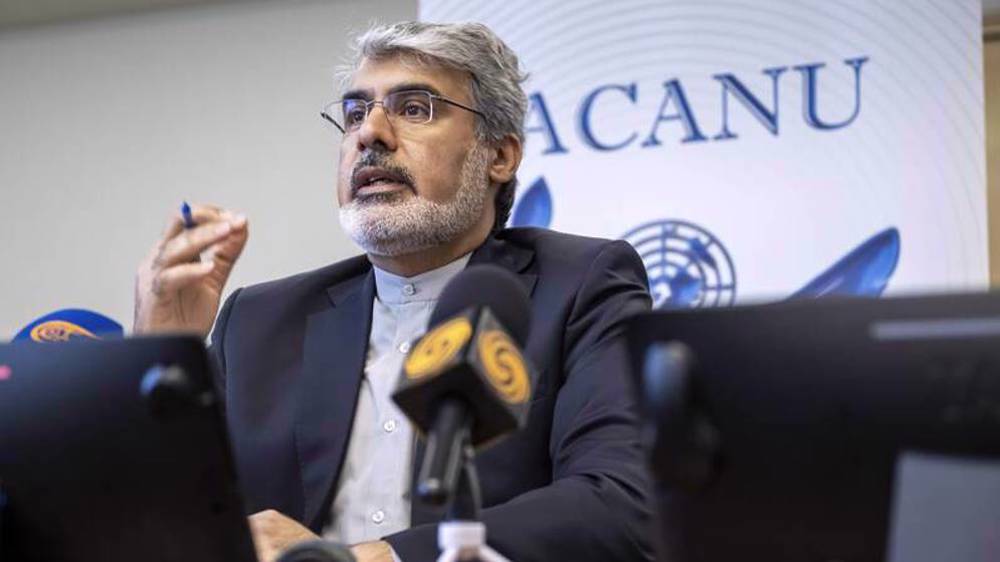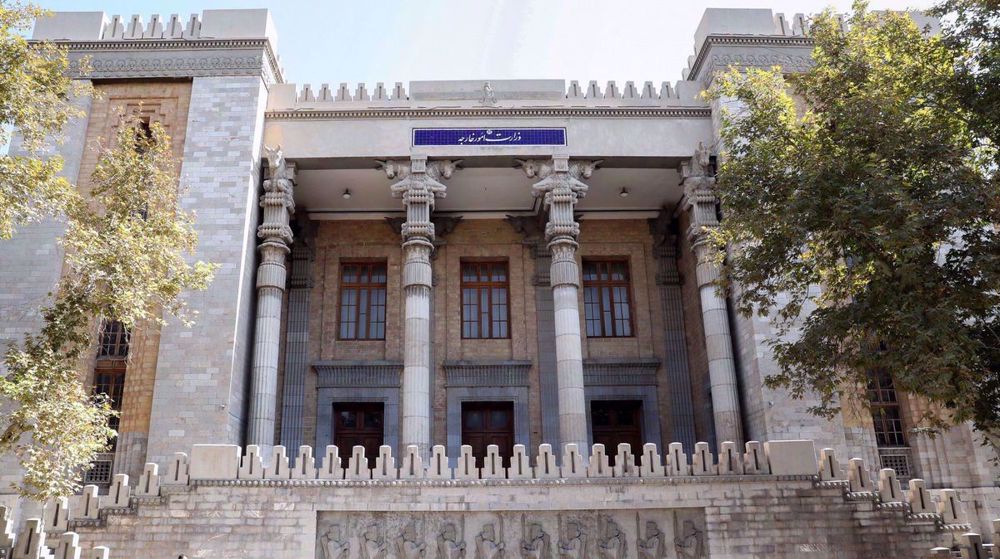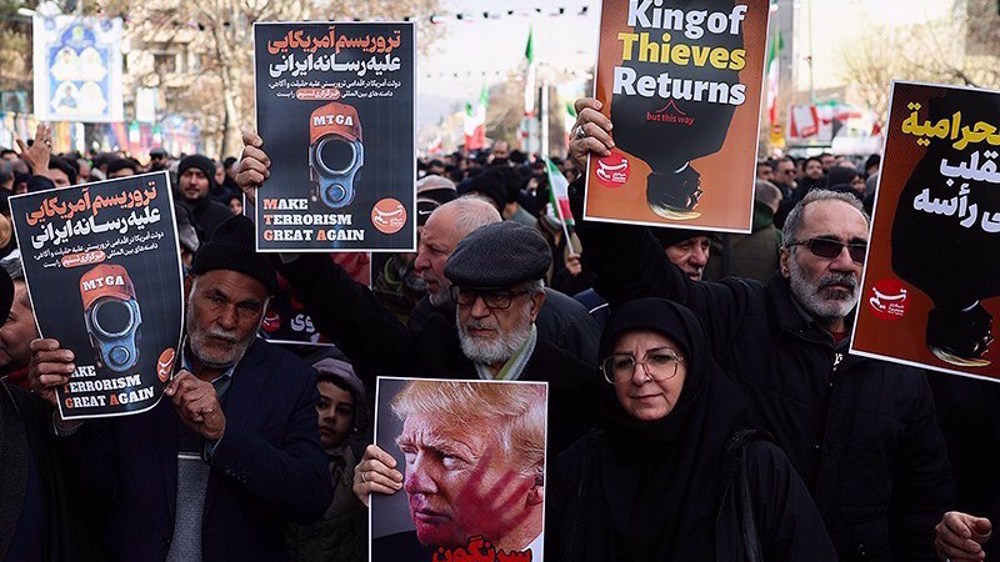West meddlesome policies spread terrorism: Iran's Shamkhani
The West and US interfering policies in the region are the root cause of the spread of insecurity and terrorism, Secretary of Iran’s Supreme National Security Council (SNSC) Ali Shamkhani says.
“A real fight against growing terrorist threats requires respect for sovereign rights of countries, particularly in Syria and Iraq,” Shamkhani said in a meeting with Dutch Foreign Minister Bert Koenders in Tehran on Monday.
He added that regional developments should be solved through logic, mutual respect and political dialog.
Shamkhani emphasized that holding the rotating presidency of the European Union by the Netherlands in the first half of 2016 will provide an opportunity for the resolution of regional challenges.
Stressing the importance of strengthening Tehran-Amsterdam cooperation in political, economic and cultural sectors, Shamkhani said the two sides can also review ways to expand cooperation on settlement of regional issues, energy export, trade development as well as anti-terror campaign.
The SNSC secretary called for a solution to the unprecedented influx of refugees fleeing their Middle Eastern and North African countries for better living conditions in Europe.
It is necessary to cooperate with the governments of countries which are plagued by terrorism to help establish security and counter the threats of extremist groups, he said.
On Friday, the Office of the UN High Commissioner for Refugees (UNHCR) said over 442,440 refugees have arrived in Europe via the Mediterranean route so far this year, 2,921 of whom have reportedly lost their lives during the perilous journey.
New horizons in Iran-Netherlands ties
The Dutch foreign minister, for his part, said a nuclear agreement, known as the Joint Comprehensive Plan of Action (JCPOA), which was reached between Iran and P5+1 group in July has opened new horizons in relations between Tehran and the European countries, particularly the Netherlands, in different fields.
Iran and the five permanent members of the UN Security Council – the United States, Britain, France, China and Russia – plus Germany finalized the text of the JCPOA in the Austrian capital, Vienna, on July 14.
Under the JCPOA, limits will be put on Iran’s nuclear activities in exchange for, among other things, the removal of all economic and financial bans against the Islamic Republic.
Koenders also said that certain countries’ financial and military support for terrorists would spread instability and insecurity in the region and across the world.
The Dutch foreign minister arrived in Tehran on Sunday at the head of a delegation and held talks with Iran’s President Hassan Rouhani, Parliament Speaker Ali Larijani and his counterpart Mohammad Javad Zarif on a range of issues, including bilateral ties.
Trump aims to create new UN and own it: Lula
US threatens to block Iraq’s oil revenues if pro-Iran parties join new government: Report
UN special rapporteur calls for Israel's suspension after UNRWA HQ demolition
Israeli troops fatally shoot Palestinian man in West Bank raid
VIDEO | Minnesota protesters brave cold to rally against ICE in ‘ICE OUT!’ day of action
VIDEO | Italians call on Rome to break off all ties with Israel
VIDEO | Activists gather outside UK arms fair complicit in Gaza genocide
VIDEO | Russian, Palestinian Authority presidents discuss Gaza










 This makes it easy to access the Press TV website
This makes it easy to access the Press TV website